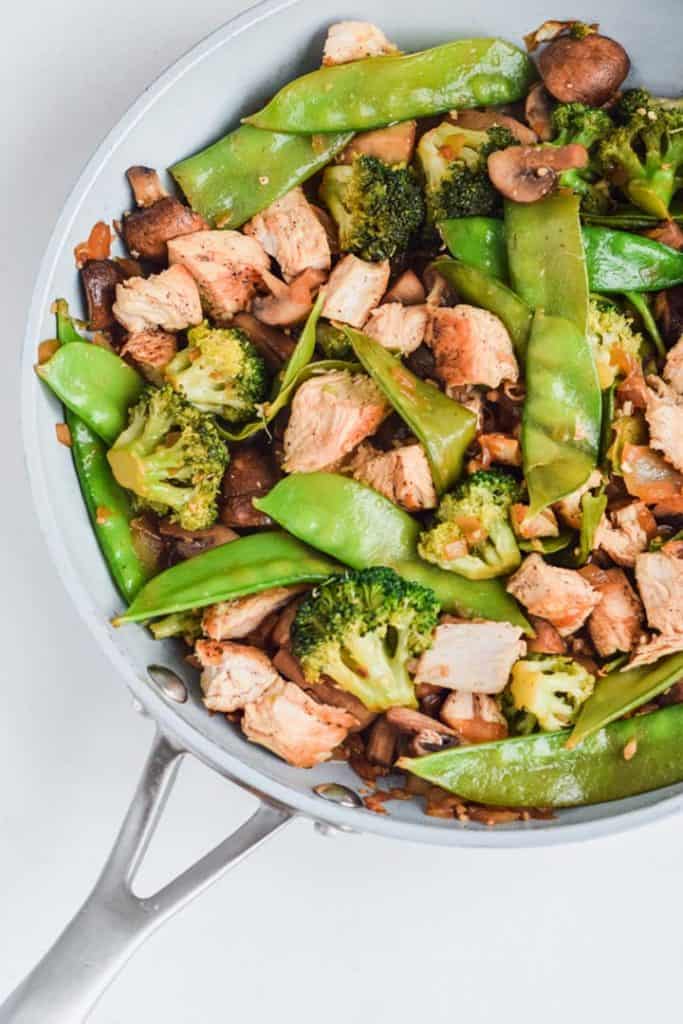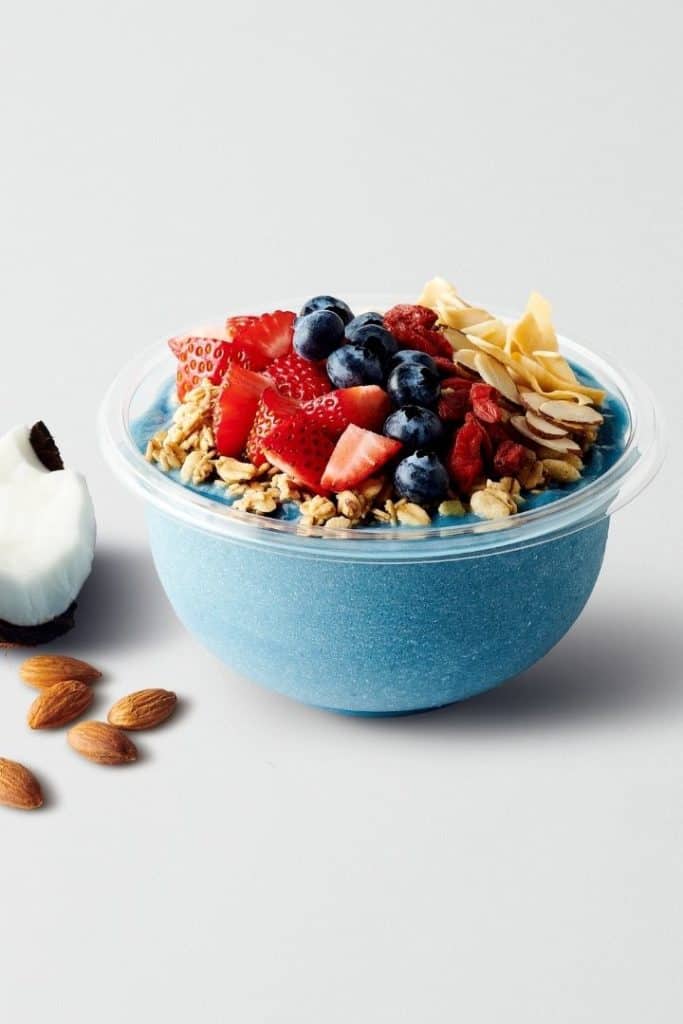Are you ready to try Intermittent Fasting but feel held back by some of the conjecture and misinformation? I’ll set the facts straight today to set you on the path to Intermittent Fasting without hesitation!
I’m pretty stoked to be writing another post on Intermittent Fasting. After all, Intermittent Fasting (or IF, as I often refer to it) has really changed my life.
My relationship with food has improved so much, and I feel like I have better control over my eating habits – and it’s a fabulous feeling. I’ve reduced my snacking and truly enjoy the healthy meals I make for my eating window. (Meal prep is awesome for this, right?)
Maybe you are on an Intermittent Fasting eating regimen already and seeing great success too. Or maybe you are considering it and are here to learn more. (I’ll link to lots more information as I write, so look for them😀 as we chat.)
I’ve also improved my metabolism in a BIG way and my body is more efficient when burning stored fat. There are tons of benefits to IF, and I can honestly say I feel amazing by following this eating lifestyle.
As many benefits and pros there are to Intermittent Fasting, there are some myths out there that need to be debunked too, and that’s what I’m going to do right now.
You know that I like to back up my words with science, and I’m going to do that in this post. After reading this, you’ll feel better informed. And that’s always a good thing!
So let’s jump in, shall we?

What is Intermittent Fasting?
Quickly, for those of you who don’t know how IF works and the benefits of working with an eating window (when you eat healthy meals) and a fasting window (the period when you do not eat), I’ll give you a quick info session here. You can also look at previous posts, like Does Intermittent Fasting Work For Weight Loss?, Beginner’s Guide To Intermittent Fasting and Intermittent Fasting For Women: A Complete Guide.
What are the types of Intermittent Fasting?
- The 16/8 Method: With this method, you fast 16 hours a day and have an eating window of 8 hours. Many people do not eat meals between 8 p.m. and 12 noon the next day.
- The 5/2 Method: With the 5/2 Method, you fast for 2 days per week. You can eat as you normally would 5 days a week and eat small meals on the 2 days (about 250-300 calories at each meal). Remember to eat well every day, choosing healthy meals.
- The Eat-Stop-Eat Method: This IF Method means fasting for 24 hours once or twice a week. It’s not for everyone!
- The Alternate-Day Method: With the Alternate-Day Method, you fast every other day and eat around 500 calories on fasting days.
- The Spontaneous Meal Skipping Method: This IF method doesn’t follow a schedule. You skip meals when it works for you.
When you choose an Intermittent Fasting eating regimen, you can look forward to improvements in your cholesterol levels and inflammatory markers. Your cognitive health benefits, and overall, you have more energy. Your brain health improves, including lowering the risk of Alzheimer's (studies back that up).
These are just a few of the terrific things IF does for you. For more useful information, read my post 9 Intermittent Fasting Mistakes Beginners Make (And How To Avoid Them!).
I will say though, I do sometimes get asked these IF questions:
What are 3 disadvantages of Intermittent Fasting?
I think Intermittent Fasting is fab, but it does take some getting used to. So I guess you could say the first of 3 disadvantages would be that a person could have difficulty sticking with it at the beginning, and give it up before they see the benefits. This can be due to cravings and hunger. You see, it's not a short-term thing, IF. It's a lifestyle plan based on nutrition and satisfying meals that get you from one step to the next.
I could say another disadvantage is the calorie restriction if this is something that you find extra tough. In that case, I would recommend that you try alternate-day fasting, where you fast only every other day and eat "normally" on the alternate days. But remember, that "normal" needs to be healthy and clean eating. Otherwise, the fasting days won't work. But never put yourself into starvation mode when trying IF. Watch my video on what I eat in a day with Intermittent Fasting and you'll see this lifestyle is totally doable!
Lastly as a disadvantage? Well, I guess the side effects that may happen to people in the early days of fasting. You may find you are lightheaded or dizzy but that lasts a short time and honestly if you eat well during your eating window, the lightheadedness does not last long at all. Drinking apple cider vinegar will help to curb your appetite and stave off excessive hunger. Read all about ACV and when to drink it for the most benefits right here.
What is the secret of Intermittent Fasting?
Yep, I get asked what is the secret of intermittent fasting and I think it's pretty simple:
- IF gives a boost to the metabolism
- Short-term fasting causes autophagy, which is when your cells repair and replace old cells
- The reduction in calorie intake can lower inflammation and that's a huge bonus
- Using glycogen stores when fasting means the body starts to tap into fat stores next (lean muscle improvements - yay!) and prevents illnesses like heart disease and high blood pressure.
You see, I backed these points up with scientific studies to show that hours of fasting really do bring healthy changes. I find that Intermittent Fasting also encourages a balanced diet including healthy fats, whole grains, vegetables, and other healthy whole foods like avocado, protein rich beef and chicken, and good for you fish. And that's why I believe in it so much.
Now let’s move on to debunking those myths!

MYTH #1: You can eat whatever you want during your eating window.
While Intermittent Fasting is all about controlling when you eat, you also have to remember that what you eat is important too.
Look at it this way. If the only food you put in your body is unhealthy, you are not going to feel very well, are you?
While we are focusing on calories in versus calories out, the value of the food is important too. You want to eat food in that eating window that will fuel your body for success and sustain you in a good way until you eat again.
I like to look at my macros (for the full scoop, watch my video on macros and how I personally work with them) when I eat. Achieving goals with the use of macros (like losing fat, building muscle, and maintaining weight) just makes things more black and white in my eyes. And if you’d like help with that, I can calculate your macros for you. Just follow the link here.
But back to the basics. Essentially, to debunk Myth #1, what needs to take place really, is to eat super healthy in that eating window. Don’t consume food that’ll raise your inflammation, raise your risk of diabetes, and clog your arteries. Your body will get used to the unhealthy diet also, and you may begin to experience cravings.
If you want to see changes for the better so that you can be the best you can be, treat your body well and feed it amazing food.

MYTH #2: Eating more often increases your metabolism.
This is simply not true. To back that up scientifically, this study shows that Intermittent Fasting has terrific effects on lipid metabolism, glucose metabolism, protein metabolism, and neuroendocrine metabolism. This results from a significant increase in norepinephrine, which stimulates your metabolism and instructs your fat cells to break down body fat.
What we should be aiming for is to stop our bodies from working so hard to digest food (constantly grazing is not ideal). Instead, we want our bodies to run efficiently (tying in with Myth #1) with the help of food based on the 3 macros – carbohydrates, fats, and protein. When you watch my video on macros (I have another explanatory video here) it’ll help explain the three macros and exactly why we should include them in our daily eating regimen, whether it’s an IF plan or not.
Working out in a fasted state is something else I do. Weight and fat loss are boosted when you work out before beginning your eating window, and once you get used to it, you won’t mind it at all. I used to think I needed that meal to get me through a workout but now, Dustin and I work out when fasting on a regular basis.
Science backs that up here, too. Body weight, body fat, total cholesterol, and triglycerides were effectively reduced in trials on body composition and fasting, lasting 12 to 24 weeks. If you aren’t sure how to go about eating the best way when following an Intermittent Fasting eating regimen, watch my video on Intermittent Fasting Meal Plan | FULL DAY IF Meal Plan (What I Eat).

MYTH #3: You need to eat breakfast – it’s the most important meal of the day.
I know, we all grew up hearing that breakfast is the most important meal and we have to start our day with a morning meal. Well, I’m going to debunk the myth that breakfast “jump starts” your metabolism and if you skip it, you’ll only overeat all day and gain weight as a result.
Randomized controlled trials have shown that in no way does skipping breakfast sabotage your weight loss goals. Actually, I found a study here, that backs up the fact that when you exercise while fasting, you can gain just as much strength and muscle mass as women who were eating on a regular 3 meals a day regimen.
I like to use the analogy that the body is like a machine, and similarly to a car, we want to give our body fuel like we do a car to keep it running optimally. But do we fill our vehicles with fuel daily? No, we put in fuel when the car needs it. Our bodies are the same – we don’t need to constantly replenish with food if it’s not yet needed.
There are many pieces to the puzzle when we talk about being healthy. I'm talking about exercising, reducing our stress levels, and doing the best we can to help start our day with energy. Adequate and restful sleep is pretty paramount to our health. Watch my video on How To Get Better Sleep if you need help there!
Remember, for more information on Intermittent Fasting, read the posts I linked to above. And check out my post What Is Intermittent Fasting? | Can It Help You Lose Weight?. You’ll find these posts to be super helpful and they’ll point you in the right direction. You can do it!
This post contains affiliate links for products I use regularly and highly recommend.



Comments
No Comments